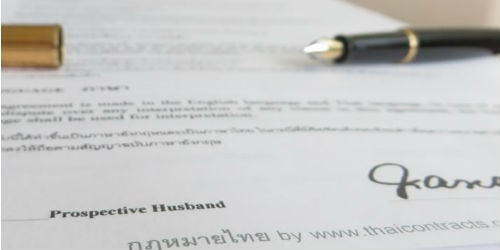In Short
Advice
"How do I get an FET in Thailand?"
Foreign buyers who are looking to purchase a new condo in Thailand will have to comply with a series of strict regulations and documents will be required as per the Thailand Condominium Act, one of which is the Foreign Exchange Transaction (FET) Form.
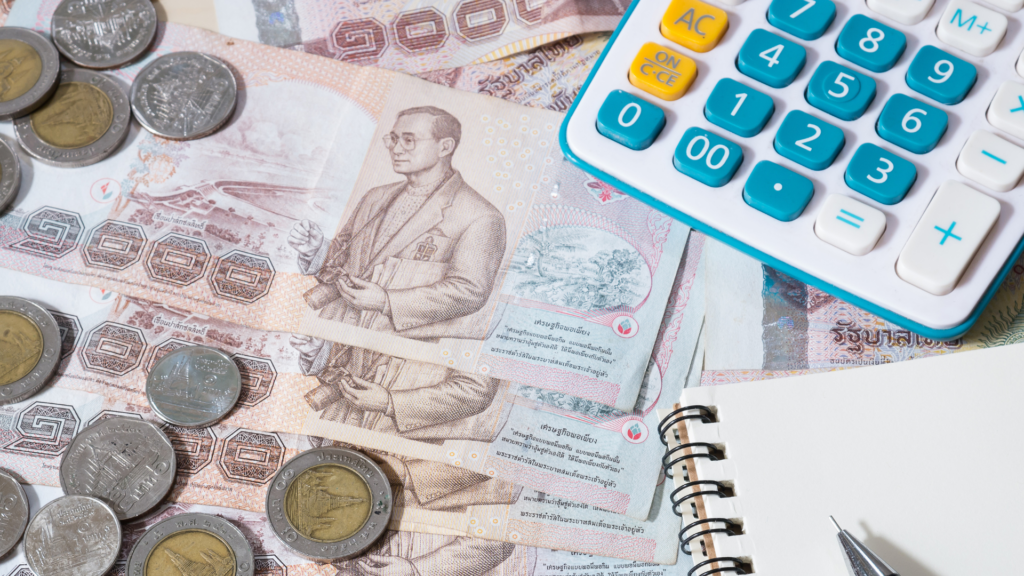
What is the Foreign Exchange Transaction Form (FET)?
The Foreign Exchange Transaction Form (FET) (formerly known in Thai as the Thor Tor 3, ต.ท.3) is an official statement by an authorized Thai bank of the exchange of foreign currencies into THB. It is essential when transferring money from overseas for purchasing Thailand real estate, complying with the Bank of Thailand (BOT)’s Foreign Exchange Policy. Simply put, the FET document is proof of foreign currency transfer into Thailand along with its conversion to Thai baht by a Thai bank.
The FET form must be shown to the Land office and must include the foreign buyer’s name identified as either a sender or receiver of the money from an overseas bank.
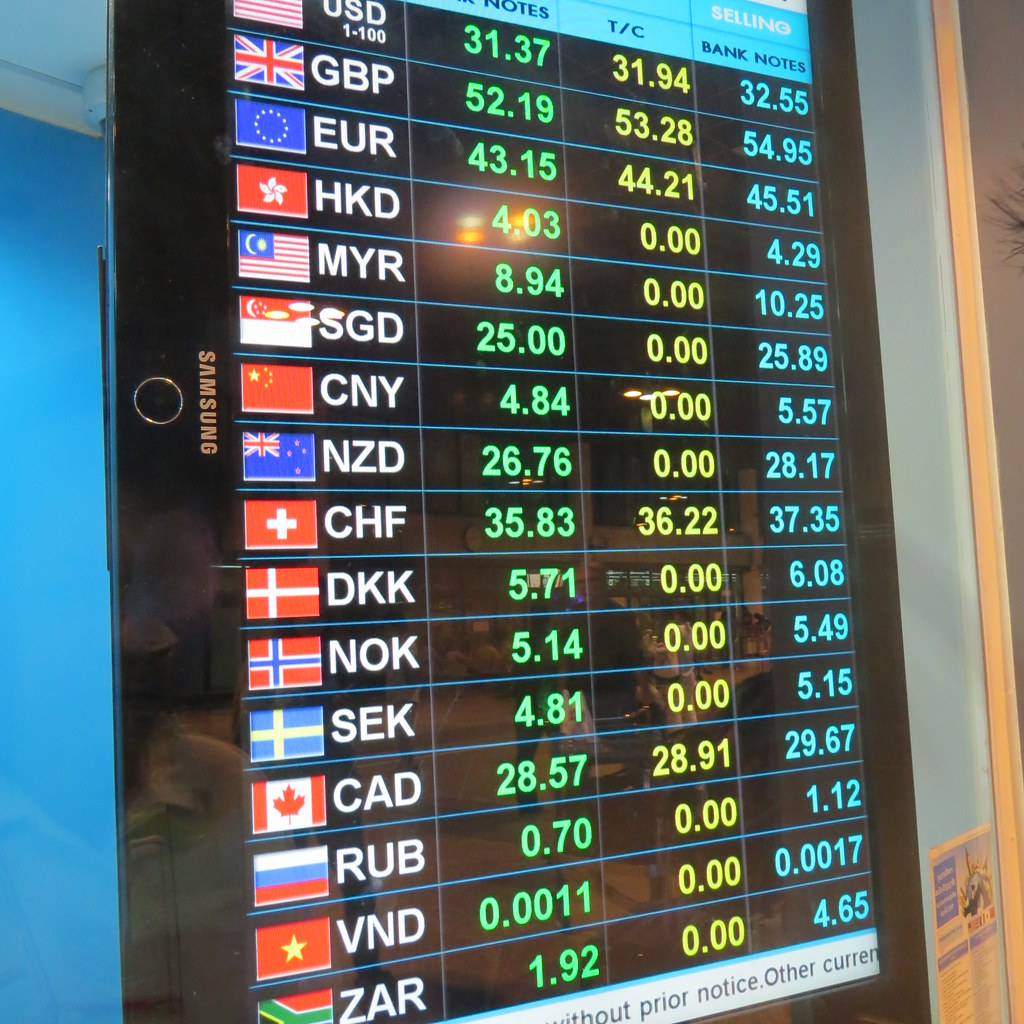
Contents of an FET form
- Transferred amount as foreign currency.
- Transferred amount converted into THB.
- Name of money sender.
- Name of money receiver.
- Purpose of money transfer.
Getting an FET Form
While transferring money from overseas into Thailand for purchasing real estate may seem relatively easy, it is easier said than done as foreign buyers will have to follow a very specific set of procedures to do so.
To get the FET form that follows the regulations of the Bank of Thailand and the requirements of the Land Office, foreign buyers will have to ensure the following:
- The condo’s full price is transferred as a foreign currency, the transferred condo full price as a foreign currency will then be converted to THB by the receiving Thai bank.
- Said transfer should include the foreign buyer’s name, sender, receiver, or at the very least in the purpose of transfer.
- Mention the purpose of transfer in the bank application form of the remittance transfer.
It’s also worth noting that an FET form will only be offered for transfers exceeding 50,000 USD. Otherwise, read on to see what are your alternatives in case your transfer amount is below 50,000.
Example of a purpose of transfer note
“Money transfer for the purchase of [unit number], on [floor], in condominium [full condo name] on behalf of [Mr./Ms. Full name according to passport]”
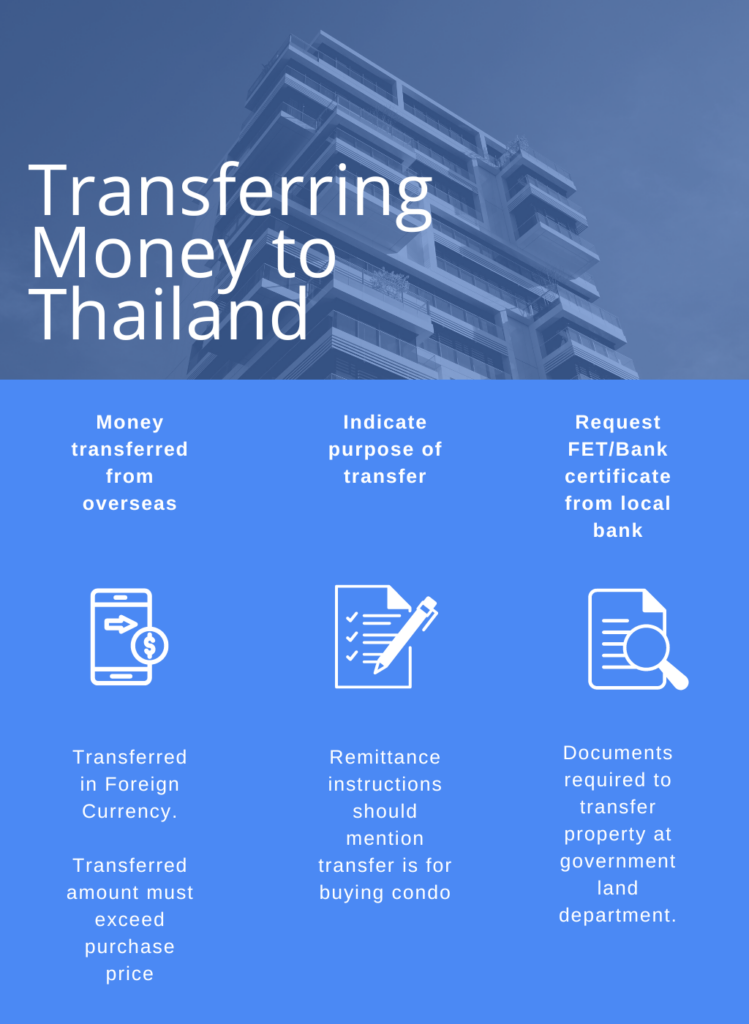
How does failure to submit a completed FET form affect your transaction?
If at any point in time a foreign buyer or his/her lawyer is unable to present an FET form during discussions of purchasing a property at a designated land office, however, this will result in the purchase being denied by the Land Officer. The FET form may also be needed by local banks when a foreign seller wishes to transfer the proceeds of a property sale back to their home country.
An Alternative: Credit Note/Bank Letter of Guarantee
Once the foreign buyer and/or their lawyer has met the aforementioned three requirements, they will be able to go to a branch of whichever is the Thai bank that received their (converted) foreign currency in order to request for an FET form or at least an equivalent.
If a foreign transfer amount falls below 50,000 USD, however, local banks may instead provide a credit note or a bank letter of guarantee, both of which are still approved by the land office. Upon receiving a credit note or bank letter of guarantee, foreign buyers must then confirm their bank includes the received amount of foreign currency, the amount converted to THB, as well as the purpose of transfer.
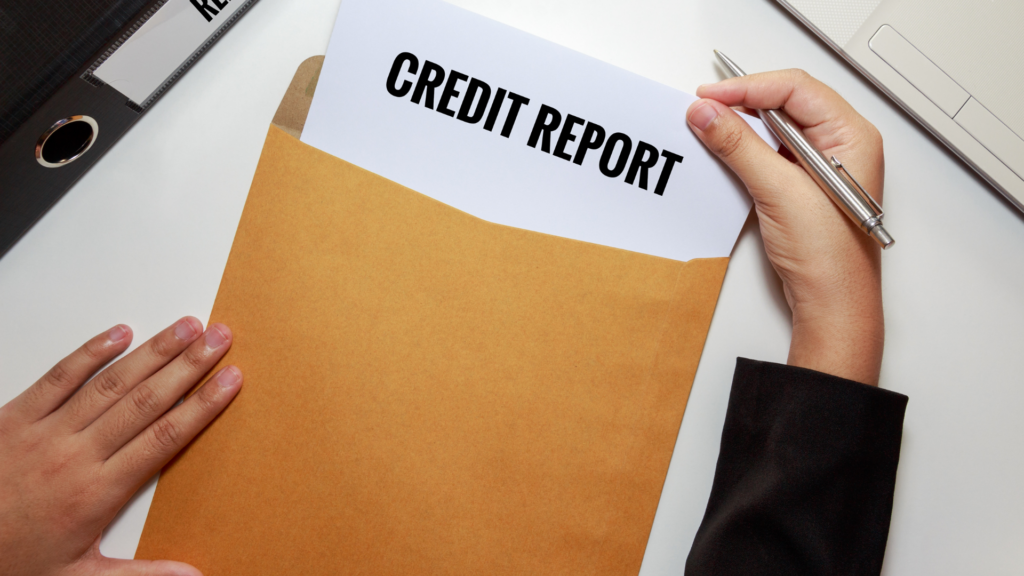
FAQ
Can I bring foreign currency into Thailand in cash to buy a condominium?
Yes, you can. However, please remember to declare the cash for this exact purpose at Thai customs upon your arrival. The Thai customs will then issue a document to present to [any Thai bank] once you exchange the foreign currency to convert it into THB. Banks do not accept large amounts of foreign currency cash unless there is a Thai Customs-provided supporting documentation.
Can a foreign buyer still get an FET form if they transfer money to a representative (law firm/property agent/friend)?
Provided that you still meet the aforementioned three requirements in getting the FET form, the representative of the foreign buyer should still be able to get the FET form as usual.
Is an FET form still needed when buying off-plans or new builds?
An FET form is still needed, which means a foreign buyer must follow the transfer guidelines when they transfer money to a project developer’s account.
Is an FET form needed for permanent or long-term residents in Thailand?
There may be some possible exemptions from the usual FET form requirement if the buyer turns out to be a permanent resident or a long-term expat resident. However, buyers are still required to show the source of funds and will have to prepare a different set of documents. Please make sure to consult a lawyer if you have further concerns.

Conclusion
If you made it this far into the article, you will know by now that getting the FET form is not as daunting or intimidating as it seems, even with the existing Thai real estate laws. Just remember to follow the rules, then you will be able to complete your property transactions easier than you ever imagined!
Any more questions?
Do you have any further questions and concerns regarding the FET form? Don't hesitate to speak up! Our property consultants will be very happy to help answer your questions.
In the meantime, let us know what you think in the comments below!
FAQs
Lorem ipsum dolor sit amet, consectetur adipiscing elit. Suspendisse varius enim in eros elementum tristique.
Explore More Topics
Free real estate resources and tips on how to capitalise
